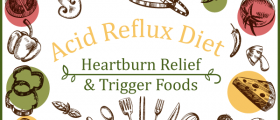Is Burping Dangerous?
Burping is the action of expelling gas from the gut through the mouth. It is completely natural and normal and there is nothing dangerous about it. The problem is if you are belching all the time, day in, day out. There are times when burping is inadequate or undesirable and belching at an inappropriate time, or belching all the time may be embarrassing for everyone.
Causes of Excessive Belching
Common causes of excessive belching include allergy to foods, bad dietary habits, medical conditions such as gastroesophageal reflux disease, gallbladder disease, irritable bowel syndrome, or physiological states such as pregnancy.

Being allergic to some components in the food might cause burping after consumption of such foods, which contain problematic substances.
For example, people with lactose intolerance will break up milk and dairy products in the wrong way, which produces lots of carbon dioxide, which is removed either by winds or belching.
Bad eating habits such as overeating, eating late, or eating too oily and too spicy food can also cause excessive burping. Acid reflux disease or gastroesophageal reflux disease is a condition, where stomach acid ends up in the esophagus. Symptoms of this disorder, include difficulty breathing and eating, nausea and heartburn, acid taste in the mouth, chest pain – and excessive burping. Burping is a common symptom in many GERD sufferers.
Excessive burping during pregnancy is caused by slower digestion than normal, which allows for the decomposition of food in the gut and the formation of gases.
Digestion is slower for two reasons. Firstly, elevated levels of progesterone slow down and relax muscle tissues, including those in the gut, which causes slow movement of food through the intestines. Also, the growing fetus presses on the intestines and slows down digestion.
Irritable bowel syndrome can also be related to excessive burping. This syndrome is caused by the improper functioning of the large intestines and is connected with symptoms such as constipation, diarrhea, and gas, nausea, pain in the stomach, and bloating. The gallbladder stores bile produced by the liver. Problems with the gallbladder can cause symptoms such as nausea, heartburn, vomiting, excessive burping, and chest pain.
- There is no systematic study on epidemiology of belching, but in one study, up to 50% of patients with dyspepsia also complained of excessive belching. In this group, belching was interfering with their social life in 20%.
- It is estimated that approximately 3.4% of patients referred to tertiary hospitals for upper gastrointestinal problem suffer from supragastric belching.
- There are two different types of belching: supragastric belching and gastric belching.
- Impedance monitoring is the gold standard in the diagnosis of belching and aerophagia and helps to identify the underlying cause of belching and to differentiate supragastric belching from gastric belching. Impedance allows the presence and movement patterns of air in the esophagus. It helps to study belching by providing objective evidence of supragastric belching events.
- Speech therapy is the most described treatment in supragastric belching. A report by Ten Cate et al. on 48 patients revealed 83% of patients with supragastric belching responded well to behavioral modification with a significant reduction of the total median visual analogue scale (VAS) from 406 to 125.
- Cognitive behavioral therapy (CBT) was also effective in the treatment of supragastric belching as shown in the study by Glasinovic et al. In this interventional study, the severity of symptoms was assessed pre- and posttreatment. The intervention involved five CBT sessions which have three components: a cognitive part, a behavioral component, and an assessment of treatment and outcome.
Treatment
Treatment for excessive burping will vary, depending on the causes. People allergic to some foods should not use those foods in their diet. Avoiding oily and spicy foods can get rid anyone of excessive burping. Increased fluid intake helps to digest food faster.
You should chew your food properly. Medicines such as Nexium and antacids are used in the treatment of acid reflux. Gallbladder problems are often addressed by surgery.
- www.nhs.uk/conditions/indigestion/
- www.nhs.uk/conditions/flatulence/
- Photo courtesy of Diana Polekhina by Unsplash: unsplash.com/photos/G0yOf-OF-SA

















Your thoughts on this
Loading...